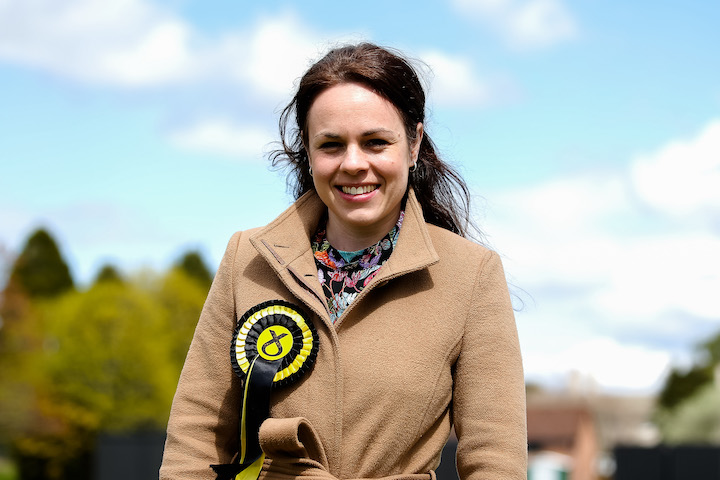Whenever a governing party changes leader midway through a parliament, it’s interesting to note what the main opposition makes of the contest. Specifically, which candidate they would be more comfortable to see win — and which they dread the most.
So, as the SNP begins choosing Nicola Sturgeon’s replacement as party leader and first minister, I’ve been asking Scottish Tories what they think so far. Whomever the Scottish Nationalists pick will be staring down Douglas Ross every week at First Minister’s Questions, while the Scottish Tory leader will have to update his strategy and rhetoric for a post-Sturgeon era.
So far there are two declared candidates. Health secretary and continuity Sturgeon candidate Humza Yousaf and Ash Regan, a former government minister who quit after refusing to vote for the Gender Recognition Reform Bill. Neither of them came up in conversations with key Scottish Tory figures. The name that did hasn’t even declared as a candidate. That name is Kate Forbes, the Scottish finance secretary.
I wrote earlier this week about how the 32-year-old, Cambridge-educated rising star had zipped up the SNP ranks in no time, but that any leadership ambitions might be hindered by her religion. Forbes is a member of the Free Church of Scotland, a bastion of Bible-believing Christianity which is out of step with modern sensibilities on a number of fronts.
Her critics’ opposition is purely about her being, to them, a Bad Person with Bad Beliefs
This puts her at odds with the uber-progressive clique currently at the top of the SNP, which was responsible for the highly contentious GRR Bill and the controversy over a transgender prisoner policy that saw a double rapist initially assigned to a women’s prison. This clique is reportedly behind ‘Operation Stop Kate’, an effort to keep Forbes out of Bute House and the SNP on board with policies such as gender self-identification.
The only people more enthusiastic about Operation Stop Kate than the Sturgeon loyalists are the Scottish Conservatives. Everyone I’ve spoken to says much the same: Forbes is young, she’s moderate, she would steer the SNP away from unpopular causes and political fads. They fear voters who are gently anti-independence and had stopped listening to Sturgeon would be more open to hearing a case from the Skye, Lochaber and Badenoch MSP.
There is also concern that she could claw back rural voters, as well as those disaffected by the SNP’s coalition with the Greens and the impact on small businesses of a controversial (albeit not yet implemented) deposit return scheme (DRS).
One leading Tory MSP described Forbes as ‘trouble on a number of fronts’. This opponent continued: ‘Obviously, she’s centre-right on social/economic policy, especially on tax and spend. And soft noes will find her appealing, given her sheer reasonableness. Plus, she will neutralise the anti-SNP/Green feeling in rural areas which is growing on the back of oil/gas repudiation, road building, DRS, etc. Our core uber-unionist vote (circa 15 per cent) are probably immune, but that still leaves plenty of undecideds up for grabs. She’s just very Tory without being a Tory.’
Another prominent Conservative MSP told me it was ‘fair to say she’s the candidate we would least like to win’. This MSP claimed this was because ‘she seems to be the only one the business community have any respect for, and if she dumps the GRR Bill she would remove a major campaigning tool for us’.
That’s just a taster of the mood – but others I spoke to were similarly gloomy. For balance, it’s worth noting that, were she to stand, there would be a loud anti-Forbes vote. Younger and more left-wing party members want progressive identity politics and/or socialist-sounding economic prescriptions, even though they have seldom heard any of the latter in 15 years.
Were Forbes to win, she would face a small but vocal chorus of internal critics from day one. It would be difficult to placate them since their opposition has nothing to do with independence strategy or government policy, and is purely about Forbes being, to them, a Bad Person with Bad Beliefs.
She will have to decide whether the disapprobation of this angry, intolerant tendency is worth the opportunity to serve her party and her country.







Comments